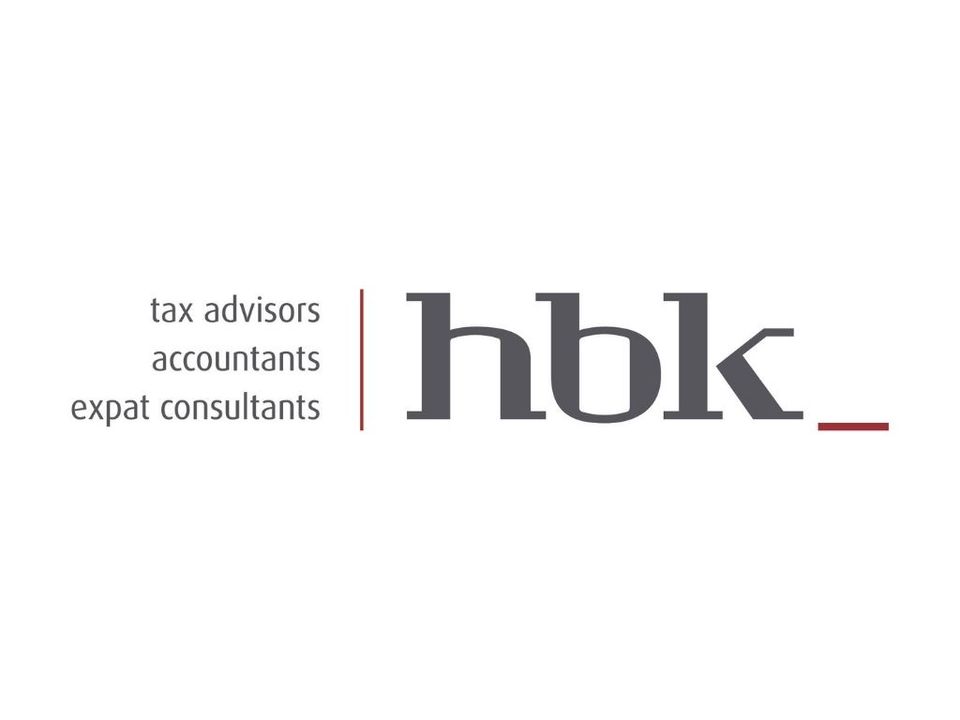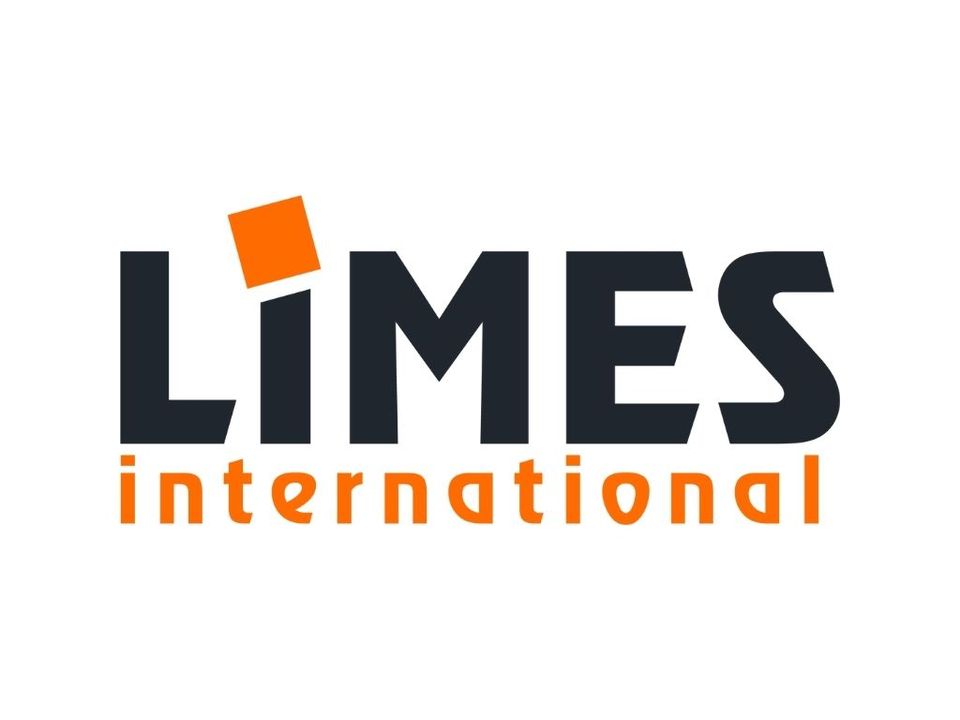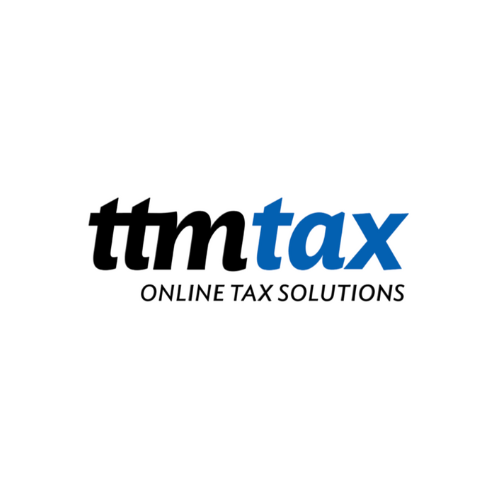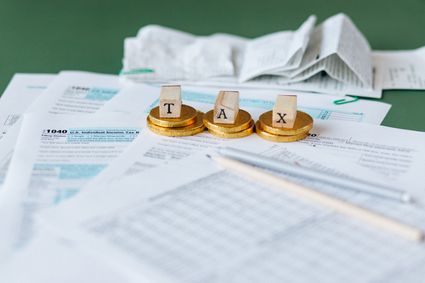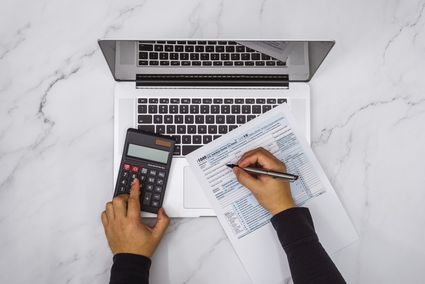Taxes

It is compulsory for everyone who lives in the Netherlands to pay taxes, but how do you go about it?
It is compulsory for everyone who is resident in the Netherlands to pay taxes. You are considered a tax resident if a substantial part of your life is here. For example, you are registered as living in the Netherlands, your family is here, you have memberships here, you own property in the Netherlands, are just some of the criteria that qualify you as a resident.
You should also check if you are required to pay taxes in your home country. The Netherlands has treaties with many countries which means citizens will not be double taxed.
Check which countries have treaties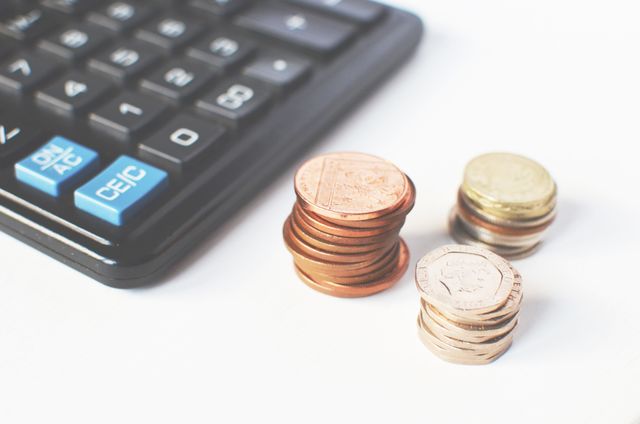
The M Form - Tax Return
The M Form (Migration Form) is the tax form you must complete the year you move to or from the Netherlands.
The purpose of this form is to declare that you did not live in the Netherlands the whole year.
It is likely you will receive a tax refund.

Income Tax
If you live in the Netherlands, you will qualify as a resident taxpayer. If you live abroad and receive income from the Netherlands which is taxable in the Netherlands, you qualify as a non-resident taxpayer. In both cases you will be subject to Dutch income taxation.
There are three types of income on which taxes are levied:
- Income from employment and home ownership (box 1)
- Income from a substantial interest in a limited liability company (box 2)
- Income from savings and investments (box 3)
This is referred to as ‘the box system’. These taxes will be calculated on the basis of your yearly tax return. The wage (income) tax, which is deducted from your salary, will be settled against the income tax liability that arises from the tax return.
Resident taxpayers of the Netherlands, and non-resident taxpayers opting for resident taxpayer status should report their world-wide income as of the 1st of January on their income tax returns.
All taxpayers are entitled to a general rebate against the tax owed: the general levy rebate. On top of this you may qualify for supplementary rebates against the tax owed.
Tax Returns
You are not obliged to submit a tax return, unless you receive a letter from the Tax authority requesting you do so. However, it may benefit you to submit one, especially if you are eligible for a tax refund.
You can claim a tax refund in circumstances such as: mortgage costs, charitable gifts, alimony, study costs (until 2021), non-working partner, medical costs not covered by your insurer.
From 1st March you can submit your tax return for the previous tax year on the belastingdienst website. You can login with your DigiD. Some sections of the form may be pre-filled with the information provided by your employer.
Non-resident taxpayers (individuals whose main place of residence is outside the Netherlands) are required to complete the so-called C form. This form is also available on the Belastingdienst website.
Besides the annual tax return forms, preliminary tax return forms for the current year are also available. Such forms enable you to claim tax refunds in an earlier stage. If you use these forms, you will not have to wait for the final settlement following your declaration at the end of the year to receive any refund you may be due.
Although it is the tax administration's goal to make tax matters as easy as possible for you, a basic understanding of the system is still necessary. Due to the fact that you have been recruited from abroad and your personal circumstances may differ from those of Dutch native inhabitants, it may be beneficial to seek assistance from a tax advisor who specialises in international tax issues.
Fiscal Partners
Where possible partners are taxed individually. This means that they pay tax on their own income and can only utilise their own deductible allowance. The Dutch tax system does recognise a number of types of joint income and deductible allowances. Fiscal partners can allocate joint income and deductible allowances to each other, which can result in a tax advantage.

